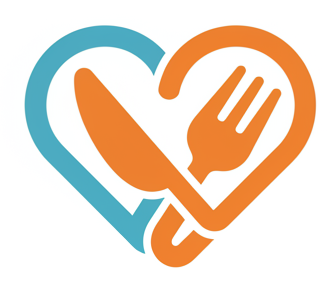Feeling overwhelmed is common in today’s fast world. But, there are many ways to reduce stress and anxiety. By adding stress management to your daily life, you can find peace and balance. This article will cover mindfulness, exercise, and nutrition to help you manage stress and anxiety.

With the right tools, you can lower stress and anxiety and feel better. Learning about stress management and anxiety relief is the first step to a healthier life. We aim to give you tips and strategies to manage stress and anxiety, leading to a more balanced life.
Key Takeaways
- Learn effective tips for reducing stress and anxiety to achieve a calmer life
- Incorporate stress management techniques into your daily routine
- Explore anxiety relief strategies, such as mindfulness and physical exercise
- Nutrition plays a crucial role in managing stress and anxiety
- By taking small steps, you can improve your overall well-being and achieve a more balanced life
- Stress management techniques can be tailored to fit your individual needs and lifestyle
- Remember, managing stress and anxiety is a journey, and it’s okay to take it one step at a time
Understanding the Impact of Stress and Anxiety on Your Life
Stress and anxiety can deeply affect our daily lives. They impact not just our mental health but also our physical health and relationships. To manage these effects, it’s crucial to understand how stress and anxiety show up in our lives. By using coping with stress tips and stress reduction methods every day, we can handle the challenges they bring.
When dealing with stress and anxiety, it’s important to think about our physical health, mental well-being, and how we interact with others. For example, long-term stress can cause physical problems like headaches and stomach issues. It can also harm our mental health, leading to depression and anxiety disorders. Using mental health tips like mindfulness and self-care can help lessen these effects.
To effectively deal with stress and anxiety, consider these strategies:
- Engage in regular physical activity to reduce stress and improve mood
- Practice relaxation techniques, such as deep breathing or meditation
- Connect with friends and family to build a support network
By adding these strategies to our daily lives and focusing on coping with stress tips and stress reduction methods, we can improve our overall well-being. This helps reduce the negative effects of stress and anxiety.
| Strategy | Benefits |
|---|---|
| Regular Exercise | Reduces stress, improves mood |
| Relaxation Techniques | Decreases anxiety, improves sleep |
| Social Connection | Builds support network, reduces feelings of loneliness |
Quick Relief Techniques for Immediate Stress Management
When stress and anxiety hit, it’s crucial to have quick relief methods. Relaxation exercises are a good start. They help lower stress and anxiety by making you feel calm. Deep breathing, progressive muscle relaxation, and mindfulness meditation are some effective ones.
Stress-reducing activities like yoga and tai chi are also helpful. They mix physical movement with deep breathing and meditation. This combo helps reduce stress and anxiety. Plus, mindfulness for stress can be practiced by focusing on the present moment without judgment.
Here are some quick relief techniques to try:
- Deep breathing exercises
- Progressive muscle relaxation
- Mindfulness meditation
- Yoga
- Tai chi
Managing stress and anxiety is about finding what works for you. Try different techniques and find a routine that makes you feel calm. With regular practice, you can lower stress and anxiety and boost your well-being.
| Technique | Description |
|---|---|
| Deep Breathing | Focus on slow, deep breaths to calm the mind and body |
| Progressive Muscle Relaxation | Tense and relax different muscle groups to release tension |
| Mindfulness Meditation | Focus on the present moment to reduce stress and anxiety |
Essential Tips for Reducing Stress and Anxiety in Daily Life
To reduce stress and anxiety, you need to make changes in your daily habits. Adding stress management techniques to your routine helps you handle life’s ups and downs. Start by setting achievable goals, focusing on what’s important, and taking breaks.
Changing your morning routine can also help. Try exercise, meditation, or journaling to clear your mind. A good morning sets you up for a successful day.
Morning Routine Modifications
- Wake up 30 minutes earlier to practice stress-reducing activities
- Incorporate physical activity, such as yoga or a short walk
- Use a planner or app to stay organized and focused
By adding these tips to your daily routine, you can manage stress better. Effective strategies include setting boundaries, taking care of yourself, and getting support from loved ones and professionals.
Workplace Stress Management
Managing stress at work is key for a healthy balance between work and life. Take breaks, stay organized, and communicate well with your team.
By using these strategies, you can reduce stress and anxiety in your daily life. Remember to take care of yourself, stay organized, and ask for help when you need it.
The Power of Mindfulness and Meditation
Mindfulness for stress and anxiety is a strong tool. It helps reduce feelings of overwhelm and boosts mental health. Adding relaxation exercises to your daily routine can manage stress and anxiety better. This leads to a better overall well-being.
Here are some tips to start with mindfulness and meditation:
- Start your day with a 10-minute meditation session
- Do deep breathing exercises during your lunch break
- Use a mindfulness app for relaxation exercises before bed
By making mindfulness and meditation part of your daily routine, you’ll see many benefits. These include less stress and anxiety, better sleep, and more focus and concentration.

Remember, taking care of your mental health is key to a happy and healthy life. By adding mindfulness and meditation to your daily routine, you’re on your way to a more balanced and fulfilling life.
Physical Exercise as a Natural Stress Reducer
Physical exercise is a great way to lower stress and anxiety. It can also help with depression and make you feel better overall. Adding exercise to your daily routine can help manage stress and anxiety.
Cardio exercises, like running, release endorphins, which make you feel happy. Strength training and activities like yoga or Pilates are also good for stress. They can boost your mood, relax your muscles, and help you sleep better.
- Choose an activity you like, like walking or swimming
- Make sure to exercise every day, even if it’s just for 30 minutes
- Keep track of your progress and set goals you can reach
Adding physical exercise to your stress plan can greatly improve your well-being. Always talk to a doctor before starting a new exercise routine.
| Exercise Type | Benefits |
|---|---|
| Cardio Exercises | Reduces anxiety, improves mood |
| Strength Training | Improves muscle tone, reduces muscle tension |
| Gentle Movement Practices | Enhances sleep quality, reduces stress |
Nutrition and Dietary Changes That Combat Anxiety
When it comes to managing anxiety, nutrition is key. A balanced diet can ease anxiety symptoms. On the other hand, a bad diet can make them worse. Making dietary changes is a smart anxiety relief strategy.
Some foods that help with anxiety are:
- Omega-3 rich foods, such as salmon and walnuts
- Complex carbohydrates, like whole grains and fruits
- Leafy greens, such as spinach and kale
It’s also good to limit or avoid foods that can cause anxiety. This includes caffeine and sugary snacks. Drinking plenty of water is crucial for staying healthy.
By choosing the right foods and making smart dietary changes, you can fight anxiety. A healthy diet is part of managing anxiety. It’s important to use it with other ways to reduce stress for the best results.
Creating a Stress-Resistant Environment
Our surroundings greatly affect our mental health. A messy and disorganized space can make us feel anxious and stressed. But, a calm and tidy area can help us relax and feel less stressed. By using stress management techniques like organizing our homes and digital spaces, we can make our environment supportive of our mental health.
Using strategies to reduce anxiety, like setting boundaries and doing activities that calm us down, can also help. For example, taking a few minutes each day for deep breathing or meditation can soothe our minds and lower anxiety.
Home Organization Tips
- Declutter living spaces to reduce visual stress
- Establish a daily routine for maintaining organization
- Create a peaceful atmosphere with calming colors and decor
Digital Decluttering Strategies
Cleaning up our digital devices and accounts regularly can reduce distractions and bring calm. This can be done by deleting unused apps, organizing digital files, and limiting social media use.
Setting Healthy Boundaries
It’s important to set healthy boundaries with others to protect our time and energy. We can do this by saying “no” to things we don’t need to do, setting realistic expectations, and making time for self-care.
Professional Support and Therapy Options
Managing stress and anxiety can be tough. Sometimes, self-help and lifestyle changes aren’t enough. That’s when professional help and therapy become key. These options can give you the tools to tackle your anxiety head-on.
There are many ways to get mental health support. You can try individual therapy, group therapy, or support groups. Each offers something unique. Individual therapy gives you personal guidance. Group therapy connects you with others facing similar challenges. Support groups are a safe place to share and connect.
Types of Mental Health Support
- Cognitive-behavioral therapy (CBT)
- Psychodynamic therapy
- Humanistic therapy
Finding the right therapist is crucial. Look for someone skilled in anxiety relief and stress management. Ask friends, family, or your doctor for recommendations. With the right support, you can learn effective ways to manage your mental health.

Building a Long-Term Stress Management Plan
Creating a plan tailored to you is key for managing stress. It means setting achievable goals, spotting what causes stress, and finding ways to deal with it. Adding stress management to your daily routine helps you handle tough times and keep a balance between work and life.
Using strategies like self-care and managing your time can really help your well-being. Self-care is essential for keeping your mind and body healthy. By focusing on self-care and learning to say “no,” you can feel less overwhelmed and more productive.
To make your environment less stressful, try these tips:
- Start your day with a consistent routine to feel good
- Focus on one task at a time to avoid feeling overwhelmed
- Regular exercise helps lower stress and anxiety
By using these stress-reducing methods every day, you can build a lasting plan for managing stress and anxiety. Remember, what works for one person might not work for another. So, it’s important to try different things to find what’s best for you.
By taking control of stress and anxiety, individuals can improve their overall quality of life and increase their resilience in the face of challenges.
| Stress Reduction Method | Description |
|---|---|
| Mindfulness and Meditation | Practices that help individuals stay present and focused |
| Physical Exercise | Regular activity that reduces stress and anxiety |
| Self-Care | Activities that promote relaxation and well-being |
Conclusion: Your Journey to a Calmer, More Balanced Life
Reducing stress and anxiety is a journey that takes time and effort. We’ve looked at many tips for reducing stress and anxiety in this article. These include quick fixes and long-term stress management strategies.
Finding the right anxiety relief strategies for you is key. It’s about listening to your body and mind. It’s about finding practices that bring calm and balance.
By being mindful, staying active, eating well, and getting help when needed, you can live a calmer life. Start small and celebrate your progress. It’s a journey, but the peace and happiness you’ll find are worth it.
Disclaimer: This article is for informational purposes only and does not constitute medical advice. Always consult a healthcare professional before starting a new exercise or wellness routine.
FAQ
What are some quick relief techniques for immediate stress management?
When you’re feeling stressed or anxious, try relaxation exercises. Deep breathing, meditation, or progressive muscle relaxation can help. These methods calm your mind and body, reducing stress and anxiety.
How can I modify my morning routine to reduce stress and anxiety?
Start your day with mindful practices like meditation or journaling. Avoid checking your phone or email first thing. Incorporate movement, like a short workout or gentle stretching, to energize your body and mind.
What are the benefits of physical exercise for reducing stress and anxiety?
Regular exercise can help with anxiety and depression. It releases endorphins, improves mood, and promotes better sleep. Try different activities, including cardio, strength training, and gentle practices like yoga or tai chi.
How can nutrition and dietary changes help combat anxiety?
Eating a balanced diet rich in whole foods, omega-3 fatty acids, and complex carbohydrates can help. Limit processed foods, caffeine, and added sugars. They can increase anxiety and mood swings.
When should I seek professional support for managing stress and anxiety?
If self-help and lifestyle changes don’t help, it’s time to seek professional support. Look for persistent anxiety, trouble functioning daily, and thoughts of self-harm or suicide.







1 thought on “Manage Stress and Anxiety with These Helpful Tips”